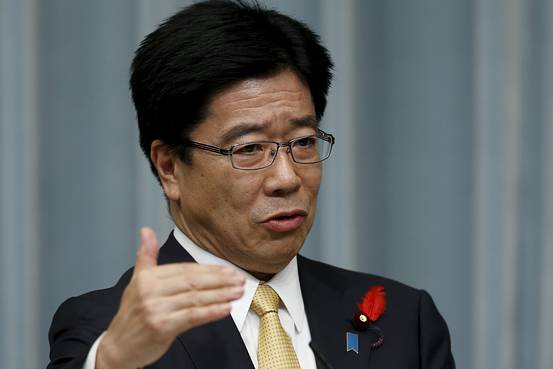Japan’s newly appointed Prime Minister Shigeru Ishiba has named Katsunobu Kato, a supporter of former Prime Minister Shinzo Abe’s “Abenomics” policies, as the new finance minister. This strategic appointment comes as Ishiba seeks to address concerns over the future direction of the cabinet’s economic policy. Kato, 68, has a rich background as a finance ministry bureaucrat and has held several key positions, including health minister, under the Abe administration. His selection signals a potential shift back toward expansionary fiscal and monetary policies, which Ishiba has recently downplayed in favor of fiscal discipline.
In a statement during his campaign, Kato expressed his commitment to continuing the legacy of Abenomics by aiming to double household incomes and revitalizing regional economies. He advocated for a stimulus package to enhance domestic investment, emphasizing that “Japan is on the cusp of emerging from deflation.” Kato believes that it is crucial to accelerate efforts to boost wages and capital expenditures to maintain momentum in the economy.
Despite his pro-Abenomics stance, Kato’s views on monetary policy appear more nuanced than some of his counterparts. He has acknowledged that conditions are aligning for the Bank of Japan (BOJ) to normalize its monetary policy but cautioned that the central bank must closely monitor economic indicators. Kato’s predecessor, Shunichi Suzuki, lauded him as a “very sensible” choice for finance minister, citing his strong expertise stemming from his tenure at the finance ministry.
Ishiba’s decision to appoint Kato may also be seen as an attempt to reshape his public image ahead of the upcoming general election on October 27, as he navigates criticism for previously advocating tighter fiscal and monetary policies. Analysts suggest that Kato’s appointment is meant to dispel any doubts about Ishiba’s commitment to growth-oriented economic strategies. Daisaku Ueno, chief FX strategist at Mitsubishi UFJ Morgan Stanley Securities, noted that the choice of Kato may be a tactical move to distance Ishiba from a reputation associated with fiscal tightening.
In recent weeks, Ishiba’s economic policies have seemed less defined. He has floated ideas for higher corporate and investment income taxes but clarified that increased tax burdens should target only wealthy individuals. Ishiba has also expressed support for the BOJ’s decision to end negative interest rates, citing potential benefits for industrial competitiveness. However, he indicated to public broadcaster NHK that Japan’s monetary policy should maintain an accommodative stance moving forward. As the nation approaches a pivotal election period, experts anticipate that Ishiba’s administration may lean more toward fiscal stimulus rather than strict fiscal discipline to foster economic growth.
As Japan navigates these changes, the implications for the economy and its recovery from deflation will be closely monitored by both domestic and international observers.



